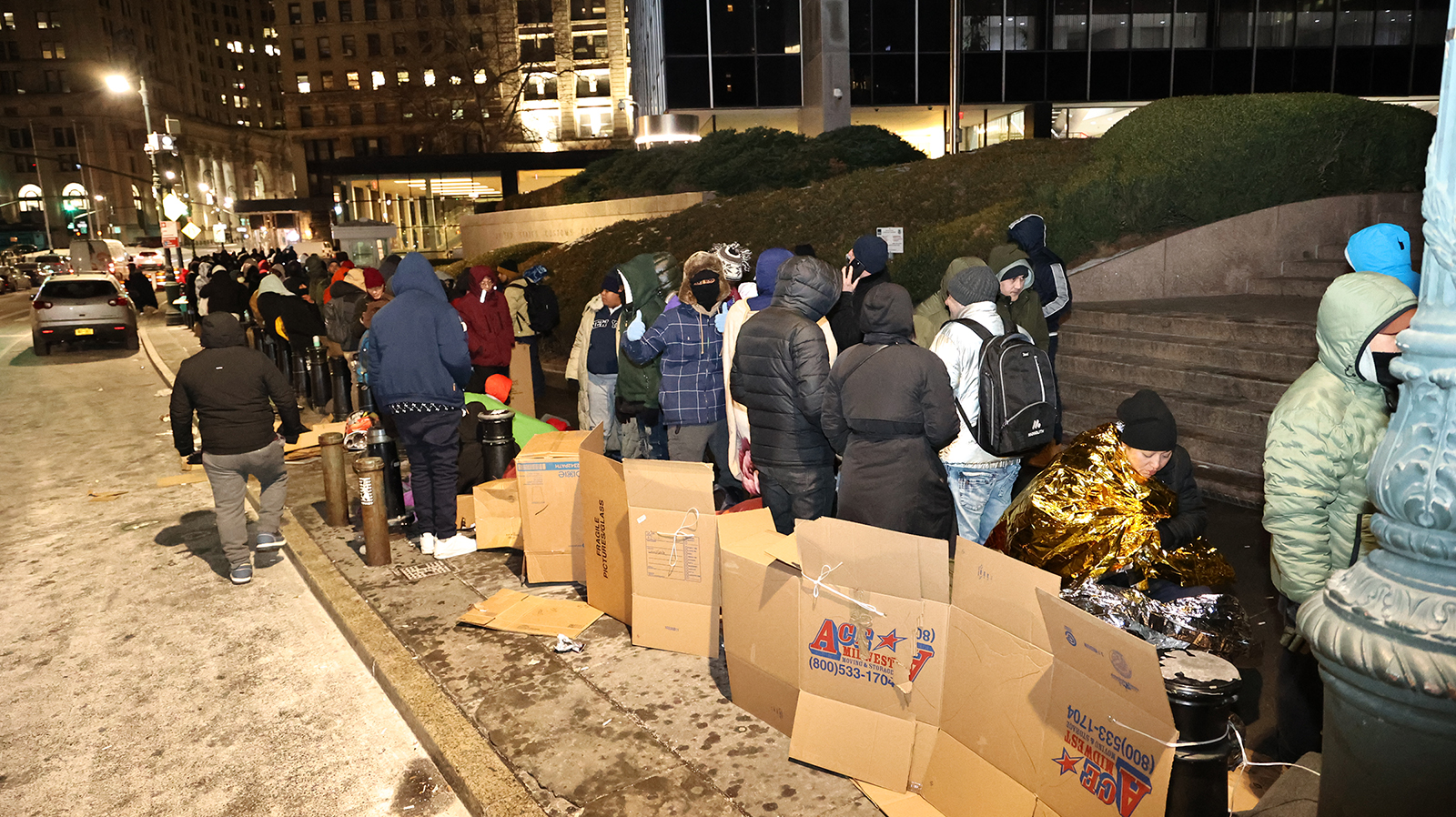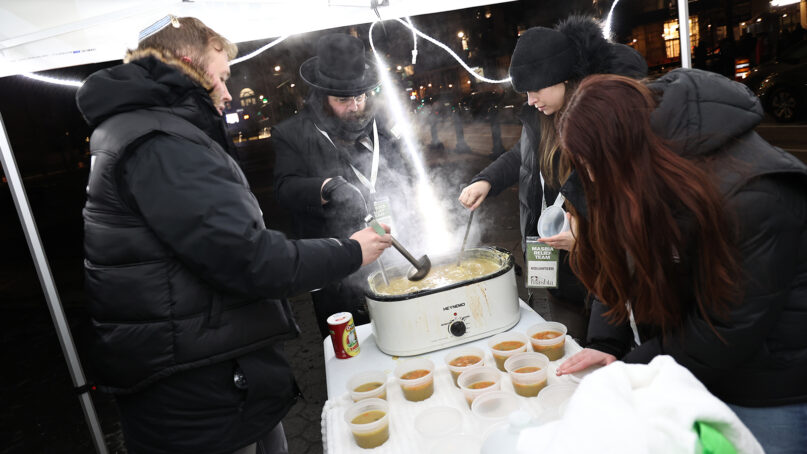NEW YORK (RNS) — When night falls, volunteers from two oddly matched Jewish charitable organizations — one Haredi from Brooklyn, the other Ivy League college students from across the country — come together outside a federal office building in lower Manhattan. Their common goal is to feed and warm migrants standing in line to apply for work permits, asylum hearings and U.S. citizenship.
Since Texas Gov. Greg Abbott’s Operation Lone Star began sending buses from the U.S. southern border to New York in April 2022, 116,000 migrants have arrived in the city and 164,500 asylum-seekers have gone through the city’s system, overwhelming the city’s shelters and immigrant services, not to mention its federal courts.
In mid-December last year, when temperatures dropped below freezing in the Northeast and the numbers of migrants showed no signs of abating, the leaders of Masbia, a soup kitchen chain run by Haredi Jews, and Challah for Hunger, a student anti-hunger organization with chapters on 35 campuses nationwide, decided to combine their resources.
The joint effort has provided hundreds of migrants with coats, blankets and hot food. “We come and comfort them a little bit, a little bit to relieve the cold … just something to alleviate the pain,” said Alexander Rapaport, director of Masbia.
Masbia — “satiate” in Hebrew — runs three soup kitchens in Brooklyn and Queens, where anyone in need can get a hot, kosher meal. Since the crisis began, they have distributed food to migrants at the Port Authority Bus Terminal and organized welcome events in Brooklyn.
But Rapaport said the situation at the Jacob Javits Federal Building, on Broadway just north of City Hall, is unprecedented. People start lining up in nearby Foley Square behind the Federal Building by 2 a.m. At 5 a.m., security agents allow the first to form the official line at the building’s entrance to wait until the doors open at 8:30.
Recent arrivals to the U.S. are required to see an Immigration and Customs Enforcement officer within 60 days. Others are there for a host of services provided in the 41-story building.

Migrants line up near Foley Square in lower Manhattan in January 2024, hours before the opening of the nearby Federal Building, where many have appointments. (Photo courtesy of Masbia)
On busy days, as many as 200 people line up, Rapaport said, many with their children. “These are people who want to do the right thing. They are following the process, doing all right, through these very miserable situations standing in the cold in a desperate way,” he said.
The priority for Masbia and Challah for Hunger volunteers is to keep them warm. Most need coats and blankets, explained Rapaport, who said he has seen people wearing latex gloves to fight the cold. Thanks to monetary donations, they have been able to purchase coats, hand-warming pads and capes.
Another unanticipated need the organizations fill is folders and binders, as many people come bearing their documents in their hands.
“It’s really saddening to see people with just their entire lives in their hands waiting and hoping that they’re early enough in the line, that they can actually get an appointment and then hope that they get approval to be able to stay in the country even longer,” said Sarah Burdette, a junior at Barnard College and president of the Challah for Hunger chapter at Columbia University and Barnard.
Burdette joined Challah for Hunger while a first-year student, starting as a dough manager who prepared the various flavors of challah, a woven bread served on Sabbath and traditional Jewish holidays.
Twice a month, Challah for Hunger, the student arm of Mazon: A Jewish Response to Hunger, sells loaves prepared by students at Barnard’s Jewish Center. All proceeds are invested in projects dedicated to fighting hunger.
As the migrant crisis worsened in New York, Burdette decided to aim the profits from selling challah to go to local organizations helping migrants. But after researching the crisis and discovering the nightly scene at the Javits building, she contacted Rapaport and proposed helping them directly.
“I feel like most people don’t know about the migrants waiting at the Federal Building. I for sure didn’t,” she said.
Combining early morning classes with night shifts at the Federal Building hasn’t been easy, explained Burdette, who studies architecture and computer science. Still, with three other students, they have managed to be on hand to help Masbia’s volunteers, and Burdette hopes to recruit more of her classmates in coming weeks.





